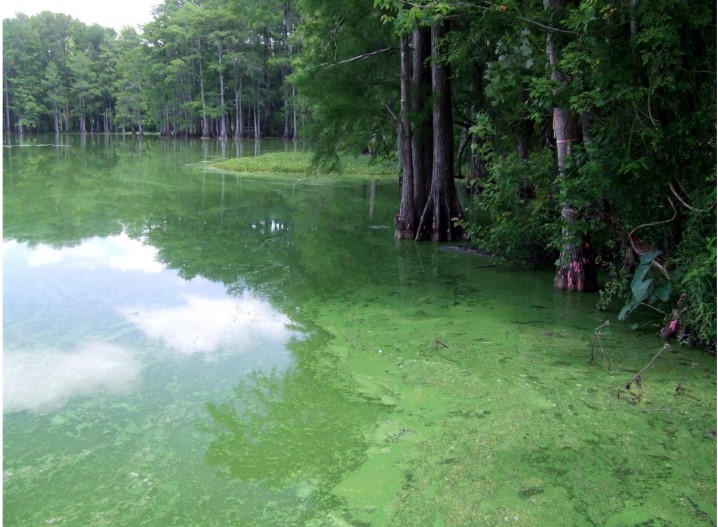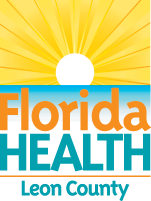It's a New Day in Public Health.
The Florida Department of Health works to protect, promote, and improve the health of all people in Florida through integrated state, county, and community efforts.
Health Officials Issue Blue-Green Algae Bloom Alert for Lake Munson
May 25, 2022

Health Officials Issue Blue-Green Algae Health Alert at Lake Munson
FOR IMMEDIATE RELEASE
May 25, 2022
Residents and visitors are advised to take the following precautions around Lake Munson:
- Do not drink, swim, wade, use personal watercraft, water ski, or boat in waters where there is a visible algae bloom. Do not get water in your eyes, nose, or mouth.
- Wash your skin and clothing with soap and water if you have contact with algae or discolored or smelly water.
- Keep pets away from the area. Waters where there are algae blooms are not safe for animals. Pets and livestock should have a different source of water when algae blooms are present.
- Do not cook or clean dishes with water contaminated by algae blooms. Boiling the water will not eliminate the toxins.
- Eating fillets from healthy fish caught in freshwater lakes experiencing blooms is safe. Rinse fish fillets with tap or bottled water, throw out the guts and cook fish well.
- Do not eat shellfish in waters with algae blooms.
Is blue-green algae harmful?
Blue-green algae blooms can impact human health and ecosystems, including fish and other aquatic animals.
For additional information on potential health effects of algal blooms, visit floridahealth.gov/environmental-health/aquatic-toxins.
Find current information about Florida’s water quality status and public health notifications for harmful algal blooms and beach conditions by visiting ProtectingFloridaTogether.gov. Protecting Florida Together is the state’s joint effort to provide statewide water quality information to prioritize environmental transparency and commitment to action.
What do I do if I see an algal bloom?
The Florida Department of Environmental Protection collects and analyzes algal bloom samples. To report a bloom to DEP, call the toll-free hotline at 855-305-3903 or report online at surveygizmo.com/s3/3444948/Algal-Bloom-Reporting-Form.
To report fish kills, contact the Florida Fish and Wildlife Research Institute at 1-800-636-0511.
Report symptoms from exposure to a harmful algal bloom or any aquatic toxin to the Florida Poison Information Center. Call 1-800-222-1222 to speak to a poison specialist immediately.
Contact your veterinarian if you believe your pet has become ill after consuming or having contact with blue-green algae contaminated water.
If you have other health questions or concerns about blue-green algae blooms, please contact the DOH Leon Office of Environmental Health at 850-895-8360.
Lifting the alert
A health alert is lifted once negative toxin analyses are obtained from DEP-coordinated resampling of the bloom, or 30 days have elapsed since the last sampling date. If a health alert has been issued, it can be rescinded at this time.
# # #
About the Florida Department of Health
The Department, nationally accredited by the Public Health Accreditation Board, works to protect, promote and improve the health of all people in Florida through integrated state, county and community efforts.
Follow us on Facebook, Instagram and Twitter at @HealthyFla. For more information about the Florida Department of Health please visit www.FloridaHealth.gov.
Follow the Florida Department of Health in Leon County on Twitter at @healthyleonfl.
Media Contact:
Pamela Saulsby | Public Information Officer
pamela.saulsby@flhealth.gov




Connect with DOH